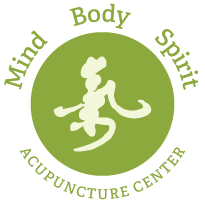Polycystic ovary syndrome (PCOS), a hormone abnormality that affects as many as one in eight reproductive-aged women, is recognized for its gynecologic effects such as irregular menstruation and infertility.
PCOS is associated with both serious reproductive consequences and serious medical consequences, says Jiling Hu L.Ac, OMD., who specializes in womens’ health. The long-term health impact of PCOS usually can be controlled with lifestyle changes and Chinese Herbal Medicine. Dr. Hu adds.
In its most severe form, PCOS is characterized by overproduction of the male hormone testosterone, which can cause male-pattern hair growth, acne or hair loss; and menstrual abnormalities related to the failure to ovulate.
Some women with PCOS will go many months or even years without having their period, or menstruating only sporadically; by the time these patients bring the matter up with their physician, they may have developed abnormal build-up of the uterine lining, a precursor to uterine cancer. Unfortunately, many women aren’t aware of the long-term consequences of Polycystic Ovary Syndrome.
Although genetic factors are believed to make certain women more susceptible to PCOS, Dr. Davis notes that lifestyle, including diet and exercise, plays an important role in its severity. In particular, excess weight exacerbates both the reproductive problems and the insulin resistance that is linked to diabetes. Thus, weight loss through diet and exercise is one of the most important strategies to combat the effects of PCOS.
Beyond that, treatment is individualized, depending on whether the focus is to correct the irregular uterine bleeding; restore fertility; women with Polycystic Ovary Syndrome who aren’t looking to become pregnant are often prescribed oral contraceptives.
For women with PCOS who do not ovulate but want to become pregnant, Chinese herbal medicine are available to restore ovulation. It can increases release of a hormone from the head called follicle stimulating hormone (FSH), which stimulates ovarian follicles to grow. Chinese Herbal Medicine can be used alone or in combination, depending on the conditions of the woman.

